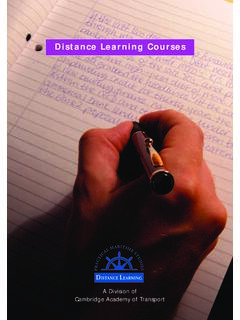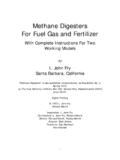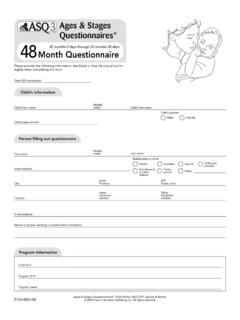Transcription of Tanker Chartering Programme - Cambridge …
1 Cambridge Academy of Transport 48 Whittlesford Road Little Shelford Cambridge CB22 5EW Telephone: 01223 845242 Tanker Chartering & Documentation 10 - 16 November 2018 Madingley Hall Cambridge Organised by Cambridge Academy of Transport 48 Whittlesford Road Little Shelford Cambridge CB22 5EW Tel: +44 (0)1223 845242 Fax: +44 (0)1223 845582 Email: Website: Jan Thompson, Course Co-ordinatorCambridge Academy of Transport48 Whittlesford Road, Little ShelfordCambridge CB22 5 EWUnited KingdomTel: +44 (0) 1223 845242 Fax: 44 (0) 1223 845582E-mail: this form to: Cambridge Academy of TransportRegistration FormTANKER Chartering & DOCUMENTATION10 16 NOVEMBER 2018To register, please complete this form and send it by fax or email to Tulika Singh at the number given Fees: The fee of 3,900 includes UK Value Added Tax, tuition, accommodation, all meals, documentation and a full social Programme .
2 Payment can be made by cheque, bankers draft or inter-bank transfer. Cheques should be made payable to Cambridge Academy of Transport in Sterling drawn on a Bank in the United Kingdom. Our Bank details are:Barclays Bank Plc, 28 Chesterton Road, Cambridge CB4 3AZ, UK Account Number: 60224553 Sort Code: 20-17-35 IBAN: GB23 BARC 2017 3560 2245 53 SWIFTBIC: BARCGB22 Alternatively you can pay by credit card. We accept Visa, MasterCard and American Express. Please complete the details Credit Card Type:Expiry Date:Card Number:Cardholders Name:Signature:Date:o Enclosed is a cheque o Please invoice my Company o I wish to pay by Credit Card (details below)PARTICIPANT 1: Title First name(s) Family name Company positionPARTICIPANT 2: Title First name(s) Family name Company positionPARTICIPANT 3: Title First name(s) Family name Company positionCompany name Address Nature of business: Tel: Fax.
3 E-mail:Tulika Singh, Course OrganiserCambridge Academy of Transport48 Whittlesford Road, Little ShelfordCambridge CB22 5EW, United KingdomTel: +44 (0) 1223 845242 Fax: 44 (0) 1223 845582E-mail: Cambridge Academy of Transport 48 Whittlesford Road Little Shelford Cambridge CB22 5EW Telephone: 01223 845242 Course Programme Tanker Chartering & Documentation 10 - 16 November 2018 Madingley Hall Cambridge Seminar Leader Captain Philip Wood Executive Director Trade and Transport Limited London UK INTRODUCTION Saturday Session 1 10 November Seminar Preview & Introductions 1445-1515 During this session, a preview of the course will be given highlighting the objectives of each section and providing the rationale to the structure.
4 Session 2 Tanker Chartering Development 1515-1615 & 1630-1730 The session will open with a brief review of the history and development of the Tanker industry. This will develop into an examination of the various types and sizes of vessels, the pattern of trade and the division of ownership between oil companies and the independent owners. The lecturer will then consider the various types of charterers and comments on how shipowners and charterers come together in the market leading up to a fixture. Time will be spent on how a fixture is concluded, with specific reference to the main terms of an initial offer, what is a firm offer, counter-offer options: accept/except or decline and re-offer and finally a few words on subjects.
5 Session 3 Basic Principles of Negotiating 1730-1745 This session provides some basic concepts to negotiation in the Tanker business which will be applied during the session that follows. Session 4 Shock Negotiation 1745-1830 During this first of several workshops, participants will be given an opportunity to practise their negotiating skills on a typical Chartering exercise. Some of the problems which emerge will be looked at in more detail in a later session. WORKING THE MARKET Sunday Session 5 11 November The World Scale System 0830-0930 The Worldscale system of quoting freight rates is unique to the Tanker market, having developed from earlier post-war methods of presenting freight rates.
6 One of the objectives of the system is to allow charterers the option to quote for business without being specific about the ports - for example, to describe a shipment as Arabian Gulf - West rather than Ras Tanura - Rotterdam. This built-in flexibility of the Worldscale System, however, does have some hazards for the uninitiated. This session will look at the System and reveal some of the traps awaiting the unsuspecting user. Tanker Chartering & Documentation 10- 16 November 2018 Cambridge Academy of Transport 48 Whittlesford Road Little Shelford Cambridge CB22 5EW Telephone: 01223 845242 Session 6 Charterer s Operational Criteria 0945-1100 Knowing your customers needs is n requirement that attaches to most businesses, and in the international markets it is easier said than done.
7 Oil charterers have become particularly selective with the threat of oil pollution always a consideration. Assuming, however, that there is a pool of quality tonnage from which to choose, what other characteristics of the vessel and its operation would distinguish one owner s offered ship from another. Amongst the features considered during this session will be: physical dimensions of the Tanker tonnage specifications ship capacity: volume versus tonnage underkeel clearance air draft manifold airdraft bow to centre manifold distance double hull configurations COW and IGS systems slop capability number of segregations performance criteria for time charter vessles Session 7 Special Clauses Used in the Oil Trades 1115-1215 Once the owner's broker has decided that he is interested in a particular piece of business he will draw up a firm offer which will contain the main elements of any Tanker charter party, many of which will have been discussed in an earlier session such as.
8 Description of ship, cargo size/description, load/discharge ports/ranges, speed, demurrage, freight rate and many others. It is a fact of life in the market today that many charterers have their own preferred clauses which are very difficult to alter. These clauses in the main deal with aspects of Chartering and operation which are peculiar to the Tanker trades. In this session some of the clauses which are encountered will be examined, including: War Risk insurance Additional premium Freight payment Cleaning Load on top Freight on slops Clean ballast Black list Commencement of laytime Conoco Weather Clause Subjects FREE AFTERNOON Session 8 Case Study: Introduction and Parts B & C 1715-1915 The case study will parallel the main lecture Programme and deal on a practical basis with negotiation, voyage estimating, recapitulation telex/fax, drawing up charter parties and post fixture laytime problems.
9 This session will be used to familiarise participants with the case study scenario and to set the first task to be accomplished? Tanker Chartering & Documentation 10- 16 November 2018 Cambridge Academy of Transport 48 Whittlesford Road Little Shelford Cambridge CB22 5EW Telephone: 01223 845242 LPG & LNG MARKETS Monday Session 9 12 November Chartering in the Liquified Petroleum Gas (LPG) Markets 0830-0930 It was not until the early 1960 s that the transportation of liquefied gases began to grow significantly, and mostly it was the class of gas known as LPG liquefied petroleum gas - which accounted for the bulk of the movements.
10 Methane, or natural gas, posed great problems in the design of a system of transportation as the critical temperature for liquefaction is significantly lower than that for LPG. This first of the two sessions on the gases which are moved as liquids in the international deep-sea trades will examine the LPG market. Topics considered will be: some definitions to unravel the often confusing terminology when it comes to the natural gas liquid business what is LPG as encountered in its use for domestic puposes versus that which is transported at sea the different gases moved as liquids in the deep-sea gas trades design of vessels to carry these gases and their special transport features how the gases are used in the energy and petrochemical trades who are the players what is the state of the current market Session 10 Anatomy of the LNG Vessel Operations 0930-1045 LNG ships are amongst the most expensive of ships.



